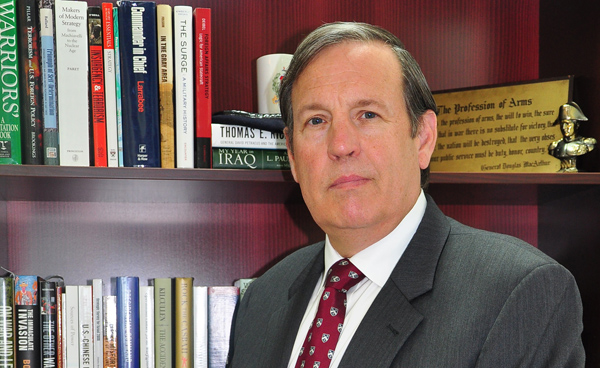Voting
?What about new design for our website
- Excellent
- Very Good
- Good


By: Dr. John R.Ballard
Former Dean of the National Defense College
Security is an evolving concept in our modern world. To act effectively against complex challenges our strategic leaders should be able to call upon a menu of support to manage world affairs and ensure peace in the most effective way possible. So, confidence in methods of international coordination is essential. States have multiple ways of coordinating their international efforts, but using an organization such as the United Nations provides particular benefits. The UN is the largest, most represented and most powerful intergovernmental organization in the world.
The UN is the primary intergovernmental organization tasked to promote international cooperation and create and maintain international order. The UN was established in 1945, after World War II, as a replacement for the largely ineffective League of Nations; it still has the aim of preventing other conflicts. When it was founded, the UN had 51 charter member states, but there are now over 190. The UN has headquarters in New York City, and offices located in Geneva, Nairobi, and Vienna. The UN is financed by assessed and voluntary contributions from its member states (although the United States provides a disproportionately large share). The current objectives of the UN include maintaining international peace and security, promoting human rights, fostering social and economic development, protecting the environment, and providing humanitarian aid in cases of famine, natural disaster, and armed conflict.
The UN has six principal components: the General Assembly (its main deliberative assembly); the Security Council (authorizing resolutions for peace and security); the Economic and Social Council (promoting international economic and social cooperation and development); the International Court of Justice (its primary judicial organ); and the UN Secretariat (for studies, management, and facilities needed by the UN to act). The UN also manages a variety of subordinate organizations that have significant roles in world affairs: the International Atomic Energy Agency (IAEA), the International Monetary Fund (IMF), the International Telecommunication Union (ITU), the United Nations Educational, Scientific and Cultural Organization (UNESCO), the World Bank Group (WBG), the World Food Program (WFP), the United Nations Children’s Fund (UNICEF) and the World Health Organization (WHO). Since 2017, the UN has been led by Secretary-General António Guterres of Portugal.
With ongoing crises in many regions and competition growing amongst several global powers, all states must be capable of coordinating their efforts within an international context. In our modern world that normally benefits from the actions of a supranational organization such as the UN. Effective coordination of international power must not be rigid or doctrinaire and should consider the views of neighboring and interested nations to ensure long term success – these can all be facilitated by UN action. With a proud history of strategic visionary leaders, the UAE can be confident in its future, but those in the know also understand that any success will necessarily be built on the effective use of international organizations and by the coordinated actions of leaders all around the world, all of whom will need all the tools at their disposition, and particularly the UN, as they navigate the uncertain world of tomorrow.
?What about new design for our website
No Comments